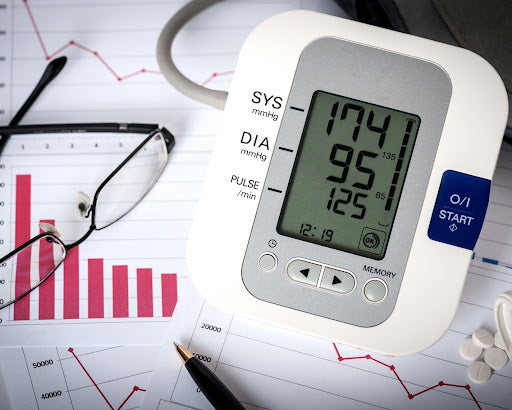Sleep apnea impacts more than just an individual’s quality of sleep. If undiagnosed or untreated, it can wreak havoc on an individual’s overall health — leading to health issues such as obesity, stroke, heart disease, and even high blood pressure. Suppose you suspect you’re suffering from sleep apnea. In that case, it is recommended you undergo a home sleep test and have the results analyzed by a certified sleep physician. Then you can be set up with a treatment plan to provide you with relief and reduce the risk of significant health concerns.
To better understand how sleep apnea can lead to health problems like high blood pressure, ApneaMed has outlined the connection and what you can do to manage hypertension.
What Is Sleep Apnea?
Sleep apnea is a common sleep disorder that causes an individual to experience disruptions in breathing while they sleep. The troubles occur when the individual’s soft tissues in their throat collapse and cause a blockage in their airway. In an attempt to reopen their airway, the individual often snores, chokes, or gasps — all unknowing to them. The cessation of breathing can happen anywhere from ten times to more than a hundred times throughout the night.
The person suffering from sleep apnea often isn’t aware of their condition but will experience the side effects and feel unrested during the day — even after getting a whole night’s sleep. Usually, their partner or a household member will notice the signs, first indicated by snoring. Because of this, sleep apnea can easily go undiagnosed and untreated, resulting in health problems like high blood pressure.
The Connection Between Sleep Apnea & High Blood Pressure
High blood pressure, also referred to as hypertension, occurs when an individual's blood pressure, the force of their blood pushing against the walls of their blood vessels, is consistently too high. When individuals have high blood pressure, their heart and blood vessels must constantly work harder and less efficiently. This excess force on their heart and vessels can damage the delicate tissues inside their arteries.
Many individuals diagnosed with sleep apnea also suffer from high blood pressure. This is because sleep apnea puts stress on your body every time it is forced to gasp for air during the night, causing undue stress on your body. As a result, your hormones go into overdrive and boost your blood pressure levels. If high blood pressure goes untreated, it can increase your risk of other health issues such as heart disease, stroke, and heart attacks.
The Importance of Sleep Apnea Testing & Treatment
A sleep assessment is recommended if you or a loved one are exhibiting sleep apnea symptoms, such as frequent headaches, snoring or trouble breathing while sleeping, or lethargy and daytime sleepiness.
A home sleep study is more affordable and less time-consuming than a standard sleep study. The individual will receive the home sleep test and instructions on administering an overnight unattended sleep study. While sleeping, the device will record the patient’s blood oxygen levels, heart and breathing rates, and how often their body moves blood oxygen saturation.
Following the self-administered test, the results will be analyzed by one of ApneaMed’s board-certified sleep physicians. They will provide a recommended treatment for sleep apnea, which will help the management of diabetes. The standard treatment uses an automatic positive airway pressure machine called APAP. A CPAP machine uses self-adjusting air pressure to keep the individual’s airways open while sleeping.
Contact our team to learn more if you have any questions about ApneaMeds’ at-home sleep apnea test or our sleep apnea treatment equipment.

